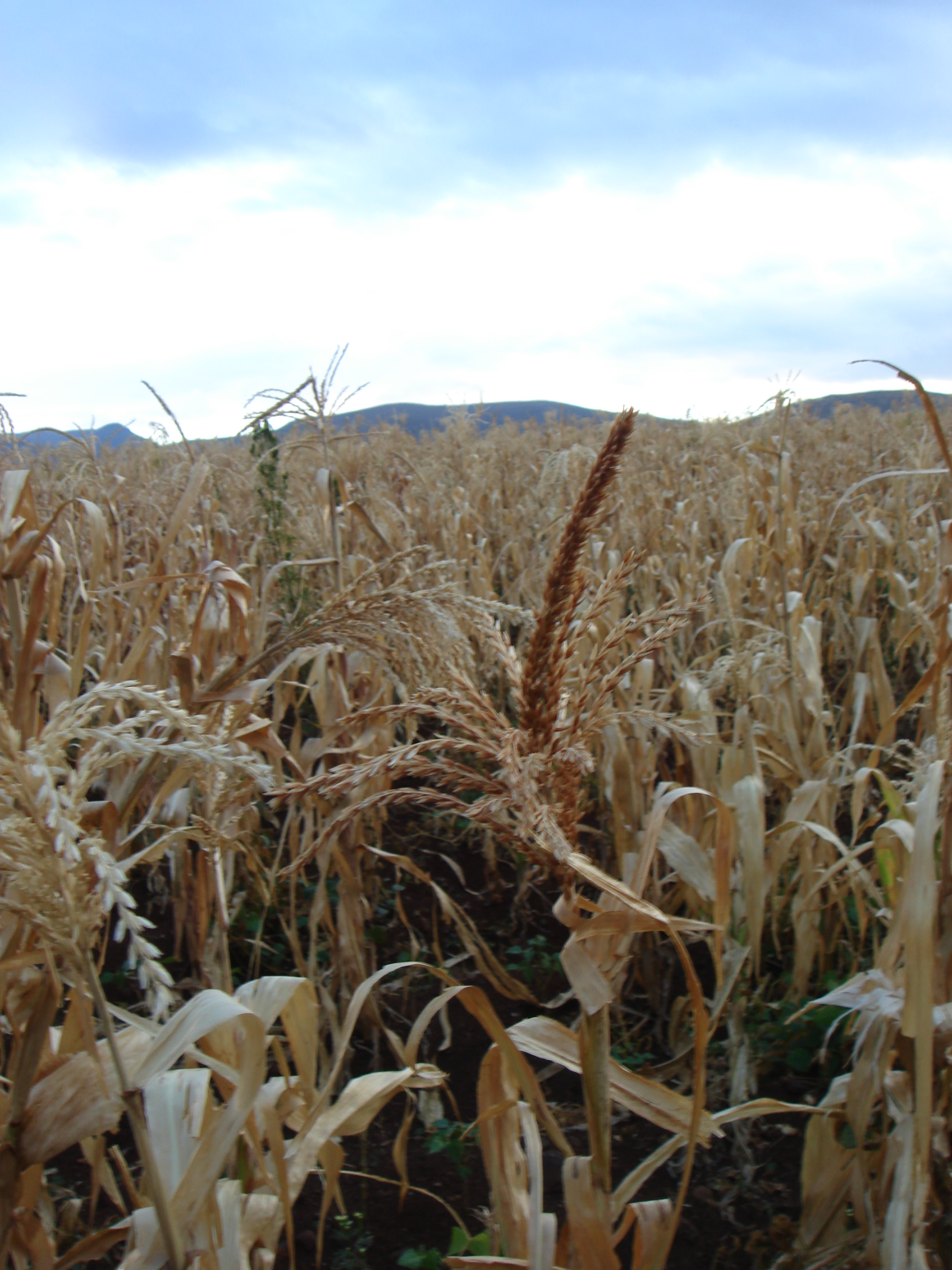''The majority of the villagers have been having good harvests mainly due to good rains, but things are different this year,'' Gapare told IRIN.
He said the rains had come late, around the first week of December, and did not last for long. When they resumed, they were erratic.
''When the first crop we planted in December started wilting, some of us decided to plant new crops hoping that the rains would be reliable, but as you can see, we have not had any luck. Most of the people here will have to buy grain from other places or mealie-meal [maize meal] from the shops,'' said Gapare, adding that some villagers were already feeding their wilted crops to their livestock.
Gapare estimates that his stock of maize will last his family another six weeks, but said: “I know of many among us who have already run out of food yet they don't have the money to buy from the shops.”
Denford Chimbwanda, president of the Grain and Cereals Producers Association (GCPA), said a number of normally wet regions in Mashonaland Central, West and East, as well as parts of Manicaland Province, had been affected by poor rains.
''Some farmers in the areas that normally receive reliable rains will have good harvests, but a substantial number have been affected. In these areas... villagers are using the water in rivers to tend to their vegetable gardens and selling the produce,'' Chimbwanda told IRIN.
In the more arid regions of southwestern Zimbabwe most crops had failed said Chimbwanda, adding that the late disbursement of subsidised fertilizer, and other inputs too expensive for the ordinary farmer to buy, had played a role.
Several officials from the Grain Marketing Board (GMB), a government controlled utility responsible for distributing inputs, were recently arrested by the Anti-Corruption Commission, while hundreds of farmers have yet to receive payment for grain they sold to the board two seasons ago.
Crop assessments - with UN agencies excluded
The exclusion of humanitarian organizations makes it difficult for them to plan food distributions, but speaking to IRIN in 2011, Agriculture Minister Joseph Made, a member of President Robert Mugabe's ZANU-PF party, described the crop and food assessments as a “a national security matter that should be treated with the utmost caution and exclusivity”.
The state-owned Herald newspaper, recently reported predictions by Made that poor rainfall and a decrease in farmland planted because of the dry weather would lead to lower yields in 2012. The minister said he was waiting for results from the crop assessment to decide on what contingency measures to take.
According to the agricultural extension services unit, AGRITEX, maize planted between November and December last year covered 247,000 hectares compared to 379,993 during the previous season.
Farmers also planted fewer cash crops, with cotton falling from more than 100,000 hectares to about 45,000, and land planted with tobacco, soya beans and millet also down, according to AGRITEX.
WFP assistance
Villagers facing extreme food insecurity in Gapare’s community and in 40 other districts around the country are receiving assistance from WFP under its seasonal targeted assistance programme.
“Because of the acute shortage of food across the country, we are likely to extend the seasonal targeted programme beyond March and that means a further strain on our resources as this was not planned for,” Simon Cammelbeeck, the WFP deputy country director, told IRIN.
| Read more |
‘‘The move to sell grain could not come at a worse time considering that the country is facing poor harvests,’’ commented Innocent Makwiramiti, a Harare-based economist.
Neighbouring countries such as Malawi and Zambia, from which Zimbabwe often imports grain during lean periods, are also expecting lower yields this year.
fm/ks/cb
This article was produced by IRIN News while it was part of the United Nations Office for the Coordination of Humanitarian Affairs. Please send queries on copyright or liability to the UN. For more information: https://shop.un.org/rights-permissions





